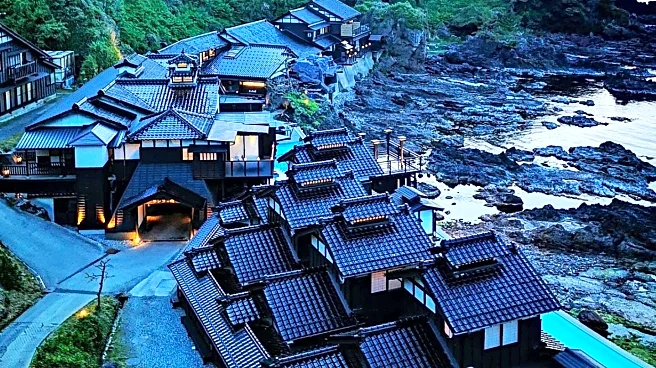What's Happening?
Luxury hospitality is increasingly integrating regenerative tourism practices, offering guests opportunities to engage in activities like coral reef restoration and collaborations with local artisans. This approach aims to combine indulgence with meaningful contributions to environmental and cultural restoration. The concept of 'regenerative luxury' is gaining traction, with resorts like Soneva Fushi in the Maldives inviting guests to participate in coral restoration dives while maintaining ultra-luxury standards. The tension between luxury and regeneration is explored, questioning whether these practices can coexist without compromising authenticity.
Why It's Important?
The integration of regenerative practices in luxury hospitality reflects a broader shift towards sustainable tourism. This trend has the potential to redefine luxury travel by emphasizing environmental and cultural contributions alongside traditional indulgence. As luxury properties prototype and showcase regenerative practices, they could influence the wider hospitality industry, promoting sustainability as a standard rather than a niche offering. However, there is a risk of 'regeneration washing,' where the language of sustainability is used for marketing without delivering substantive impact. The success of regenerative luxury could pave the way for transformative practices across the sector.
What's Next?
Luxury hospitality managers are encouraged to integrate regeneration across operations, balancing exclusivity with openness and transparency. The sector may continue to prototype regenerative practices, potentially leading to widespread adoption across the industry. As regenerative tourism gains visibility, it could attract more guests seeking meaningful travel experiences, driving demand for sustainable practices. The challenge will be to maintain the tension between luxury and regeneration, ensuring that both exclusivity and inclusivity are preserved in guest experiences.
Beyond the Headlines
The concept of regenerative luxury raises ethical questions about the commodification of participation in environmental restoration. It challenges the traditional notion of luxury as exclusive and scarce, suggesting that true luxury may lie in contributing to collective ecological and cultural well-being. This shift could redefine luxury in a climate-challenged world, positioning it as a leader in sustainable practices. The paradox of regenerative luxury invites deeper reflection on the role of privilege and responsibility in tourism.








